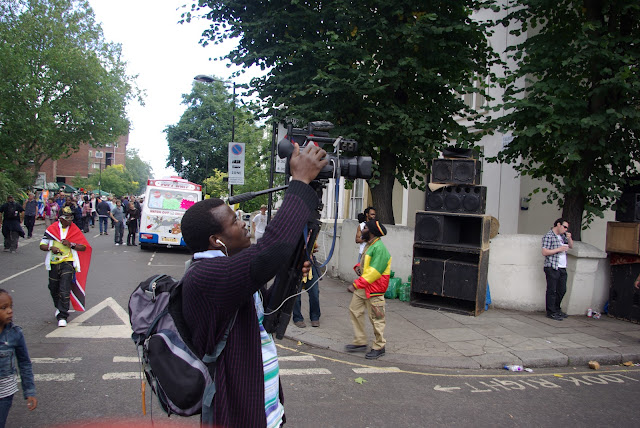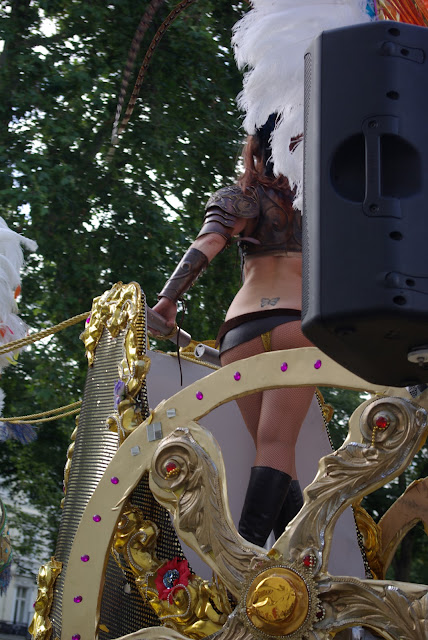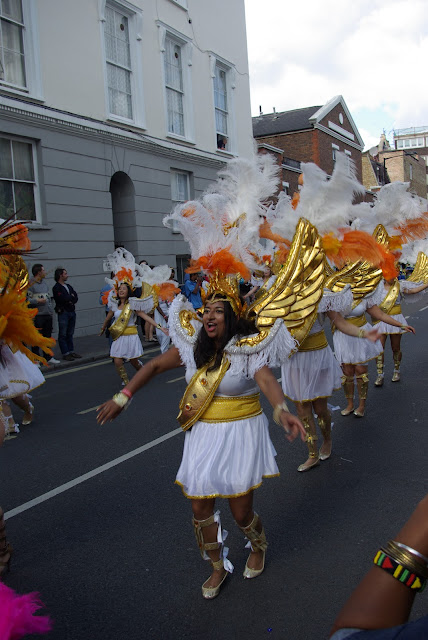WELCOME
TO CARNIVAL!
Held each August Bank Holiday since 1966, the Notting Hill Carnival is the largest festival celebration of its kind in Europe.Every year the streets of West London come alive, with the sounds and smells of Europe’s biggest street festival
What time is Carnival due to start?
The Carnival Bands will take to the roads from around 9am on Sunday 26th August and the same time on Monday 27th of August. The Carnival parade should complete its procession by 7pm.t is advisable to use public transport to get to the Notting Hill Carnival in London, as most of the local roads will be for pedestrian use only. Also be aware that for safety reasons some stations may close temporarily if they become overcrowded. It may be worthwhile waiting until the station reopens rather than finding an alternative station.
-
How to get to Carnival?
- There are a number of parking restrictions and road closures so the best way to travel to Carnival is by public transport
What is the best way to enter and exit the Carnival?
Over the years the Northern entrances and exits have been the busiest, especially around the Harrow Road and Great Western Road. Carnival Organisers suggest to use other entrances particularly from the west or South.OOD AT THE NOTTING HILL CARNIVAL The Notting Hill Carnival 2012 dates are August 26th and 27th.
There's nothing quite like the smell of Notting Hill Carnival. We're talking about the wonderful aromas of traditional Caribbean food. The Notting Hill Carnival provides the perfect introduction to jerk chicken, rice and peas and rum punch as well as the odd taste of other exotic cuisines. Bring a healthy appetite along to Carnival, as there are patties, curries, jerk chicken and fried plantain from the street stalls to sink your teeth into.
MUSIC
Music is at the heart of Notting Hill Carnival, with traditional and contemporary sounds filling the air for miles around. Historically steel bands, Soca & Calypso Music have been at the heart of Carnival but in recent years these have been overtaken by the static sound systems playing anything from Reggae to R&B, Funk, House, Dub and much more.Live stages also feature local bands, top international artists and sounds from around the world – Eddie Grant, Jamiroquai, Wyclef Jean, Courtney Pine and Burning Spear have been among the eclectic line up in previous years.
The Origin of calypso can be traced back to the arrival of the first enslaved Africans brought to work in the sugar plantations of Trinidad. Forbidden to talk to each other, and robbed of all links to family and home, the enslaved Africans began to sing. They used calypso, which can be traced back to West African Kaiso, as a means of communication and to mock the slave masters. These songs, usually led by one individual called a Griot, helped to unite the slaves. Calypso singing competitions, held annually at Carnival time, grew in popularity after the abolition of slavery by the British in the 1830s. The Griot later became known as the Chantuelle and today as the Calypsonian.
L ike calypso, soca was used for both social commentary and risqué humor, though the initial wave of soca acts eschewed the former. Lord Shorty was disillusioned with the genre by the 1980s because soca was being used to express courtships and sexual interests. Like all things related to sexual freedom, it became embraced because of its ability to reflect what people were thinking and their desires in a society that was sexually repressed.
Soca music became an expression of sexuality through metaphors in the West Indies. Soon after, Shorty moved to the Piparo forest, converted to the Rastafari movement and changed his name to Ras Shorty I. There, he created a fusion of Reggae and gospel music called jamooin the late 1980s.In the 1990s and now the new century Soca has evolved into a blend of musical styles.
Steel Bands: also known as "Pan" will be filling the streets of Notting Hill with their wonderful melodic sounds throughout the Bank Holiday weekend. Steelband came from the "Tambu Bamboo" band from Trinidad in the early 1030s. Trinidadians used to beat the bamboo and sing and by using some creative means, began to create different tones. This led to the use of oil drums and in a short space of time the Steelband was born.
Static Sound Systems: over 40 sound systems positioned around the Carnival area provide the perfect setting for DJ's to strut their stuff. From Latin jazz, reggae and garage to hip hop and drum "n" bass. Samba Samba: Samba is a type of music and dance developed from the musical traditions of the enslaved Africans of Brazil. Samba originated in the north of Brazil and was radically developed in Rio at the turn of the century. Now you can hear the Samba beat in London and throughout the world.
HISTORY
The Notting Hill Carnival is the largest street festival in Europe and originated in 1964 as a way for Afro-Caribbean communities to celebrate their own cultures and traditions. Taking place every August Bank Holiday weekend in the streets of London W11, the Notting Hill Carnival is an amazing array of sounds, colourful sights and social solidarityAt the roots of the Notting Hill Carnival are the Caribbean carnivals of the early 19th century – a particularly strong tradition in Trinidad – which were all about celebrating the abolition of slavery and the slave trade. The very first carnival was an attempt to showcase the steel band musicians who played in the Earls Court of London every Weekend. When the bands paraded through the streets of Notting Hill, they drew black residents out on to the streets, reminding them of the Caribbean homes they had left behind.
In the days of abolition, there was a strong element of parody in the songs and dances Trinidadians performed. Having been forbidden to hold festivals of their own during the period of slavery, they now took full advantage of the relative new freedoms the ending of slavery brought them. Dressing up in costumes that mimicked the European fashions of their former masters, even whitening their faces with flour or wearing white masks, they established a tradition that continues in the costume-making of today's Notting Hill Carnival. The proper name for this aspect of the Carnival is Mas (derived from Masquerade)




































































